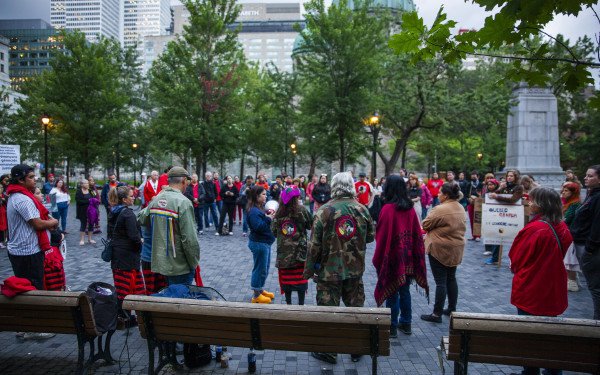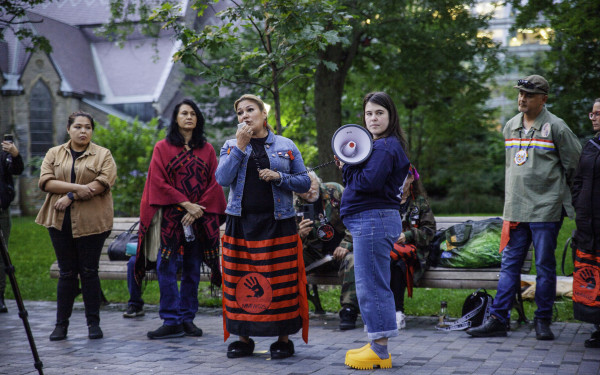Vigil Commemorates Cyclist Killed by Police in Quebec City
Police Officers Allegedly Destroyed Evidence
Twenty people gathered at a vigil Thursday night at Place Émilie-Gamelin to commemorate the cyclist who died in Quebec City after being run over by police Wednesday.
“I would say all of Quebec will turn towards this event to say, that was someone completely crushed. There’s a hatred that’s developing more and more towards cyclists, and I find it shocking because people don’t realize and it passes unnoticed,” said co-organizer Blanche Deschaines, an anthropology student at Concordia.
“It wasn’t an accident, because they clearly displaced the proof,” Deschaines explained. “[Police] believe that they’re above everyone else, they feel they have a power that they shouldn’t have. They can allow themselves to do whatever they want without fear of incrimination.”
In comparison to the vigil of 200 people in Quebec City held the same night, the event was small, so attendees decided to hold an informal discussion on the topic. Despite the small size of the group, police vans cruised only metres away from the attendees, giving way to a discussion on how to deal with police brutality.
“It’s been a long time since we’ve seen police punished for their actions. As long as we don’t riot to put them back in their place, they won’t understand. That’s just how it works here,” said a member of the vigil who declined to give his name for fear of police retaliation. Other members of the vigil shared different perspectives.
“It’s been a long time since we’ve seen police punished for their actions. As long as we don’t riot to put them back in their place, they won’t understand.”
“People will always endorse the police state and the culture of cars for as long as they endorse the capitalist state,” offered Yann Jobin, a student in digital arts at Université du Québec à Chicoutimi.
“If people continue to endorse capitalism, they won’t see the misdeeds of the police and the problems with cars. I think that it’s good to take action, but I think that [educating] the people around us is just as important, if not more [than action]. It starts from there,” he concluded.
Felix, a student in political science at Université du Québec à Montréal and native of Quebec City, offered background on the event. He explained that the branding of Saint Roch as the tech centre of Quebec led to a rise in tensions between marginalized populations and the authorities following the initial wave of gentrification.
“It’s a really repressive conflict of gentrification in Saint Roch [where the cyclist was killed]. I get the impression that [conflict happens] with the complicity of the municipal authorities who want to effect a social cleansing,” he told The Link.

_900_600_90.jpg)




WEB_600_375_90_s_c1.jpg)
_600_375_90_s_c1.jpg)